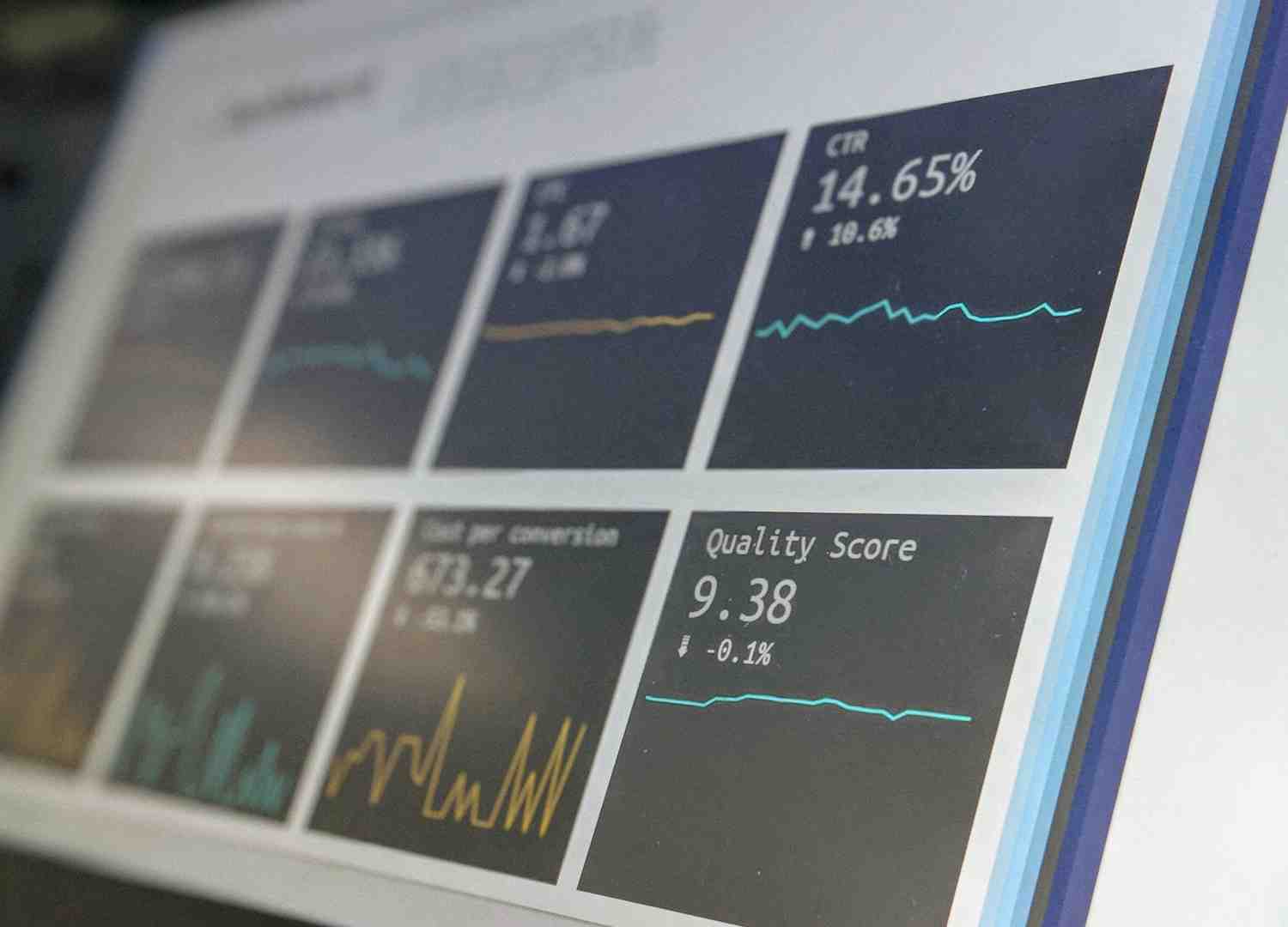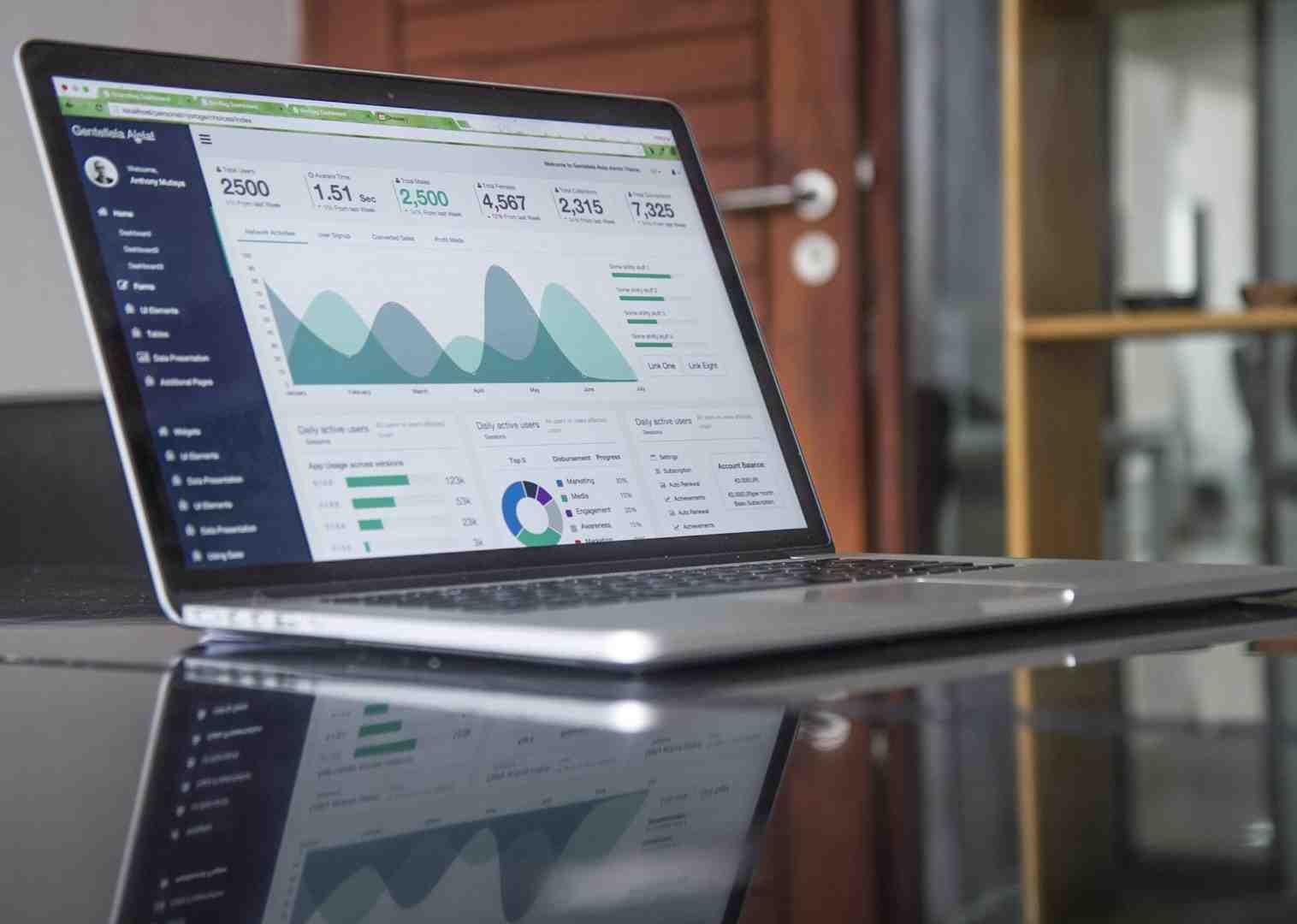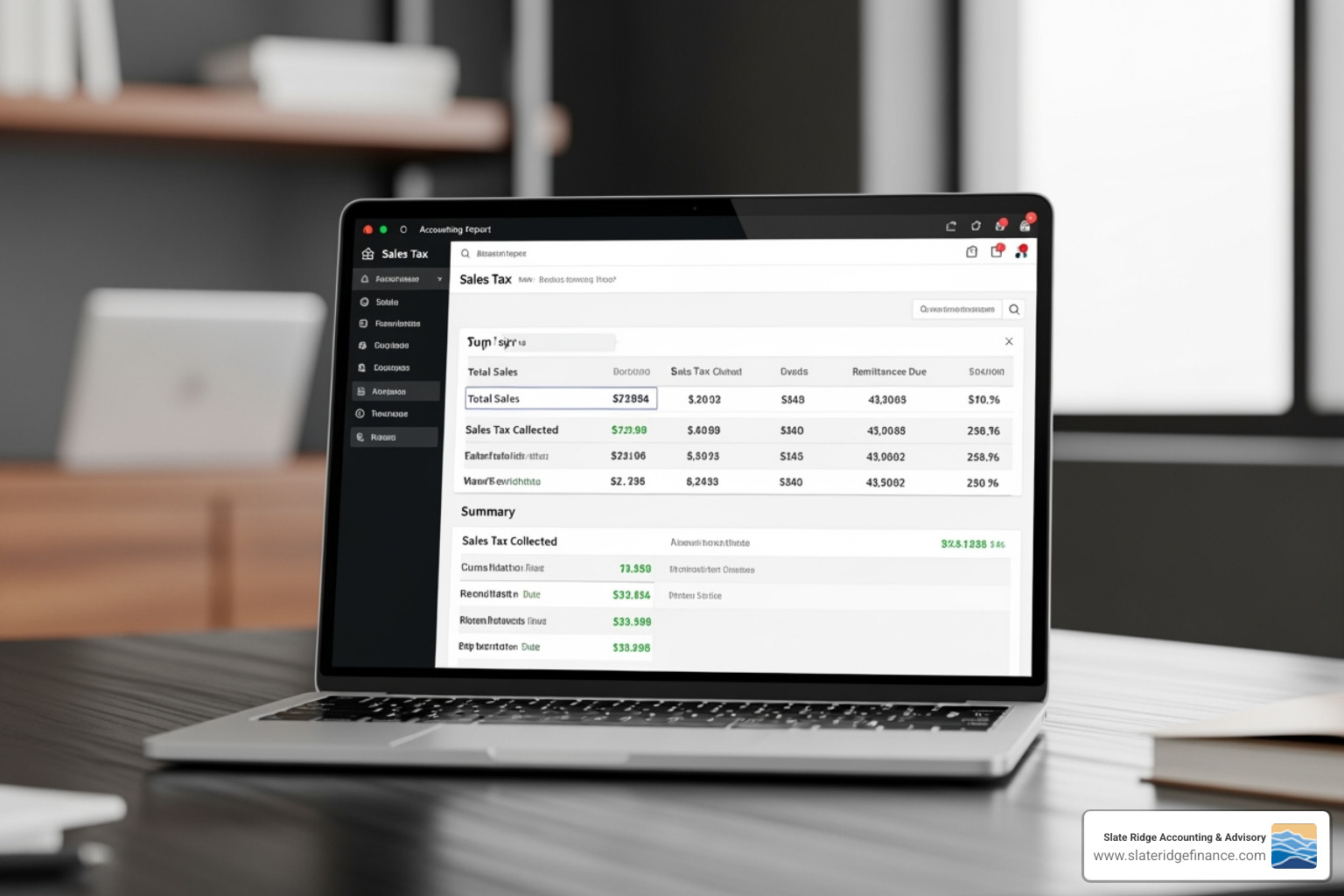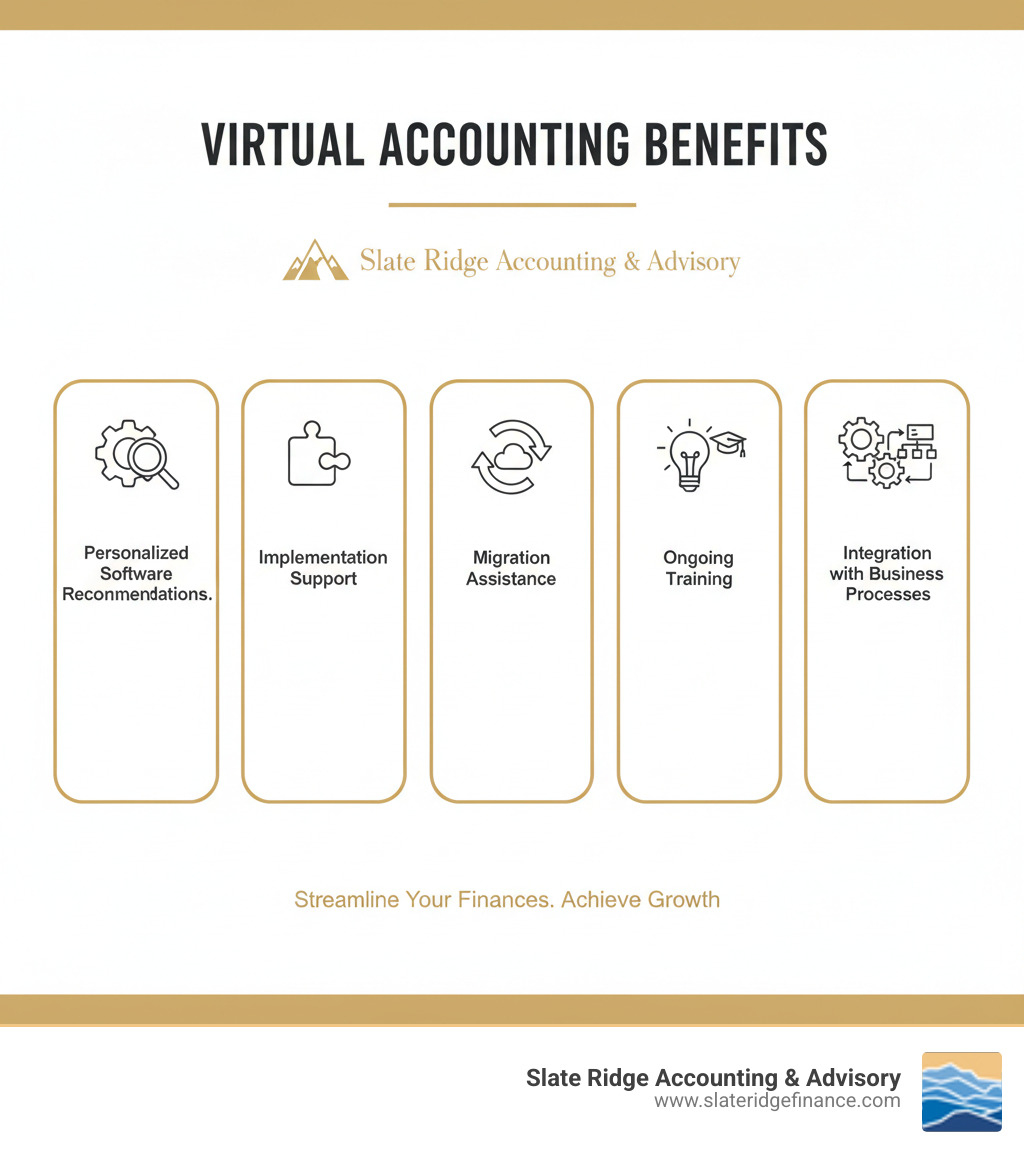Why Choosing the Right Online Accounting Software Matters for Your Small Business
Online accounting software small business solutions have transformed how entrepreneurs manage their finances. If you're comparing options, here are some top contenders:
| Software | Best For | Starting Price | Key Strengths |
|---|---|---|---|
| QuickBooks Online | All-around functionality | $30/mo | Comprehensive features, saves 28.7 hours/month |
| Xero | Cloud collaboration | $15/mo | Real-time access, 4.4M+ users, extensive app integrations |
| FreshBooks | Service-based businesses | $19/mo | Simple invoicing, time tracking, project management |
| Sage Accounting | Growing businesses | $10/mo | AI-powered automation, multiple scalable editions |
| Wave | Startups on a budget | Free | Basic invoicing and accounting |
Remember manual bookkeeping? Spreadsheets riddled with errors, hours spent on data entry, and the nagging feeling you were missing something important? One business owner described it perfectly: "Life before Xero was a nightmare. Using a spreadsheet took a ridiculous amount of time."
The administrative burden of tracking expenses, chasing payments, and preparing for tax time can steal focus from growing your business.
Modern cloud-based accounting software changes everything. These platforms provide real-time visibility into your financial health, automate time-consuming tasks, and help you make informed decisions backed by accurate data. They connect to your bank accounts, generate professional invoices, track expenses with a simple photo, and keep you tax-ready year-round. The right software becomes your financial command center, accessible anywhere with an internet connection.
The Game-Changing Benefits of Online Accounting Software for Small Business
When running a small business, your time and money are paramount. Online accounting software small business solutions deliver on both fronts in surprising ways.
The biggest game-changer is time savings. We're not talking about a few minutes here and there. QuickBooks Online users report saving an average of 28.7 hours per month—nearly a full workweek. Sage Accounting users see similar results, reclaiming up to five hours a week that used to disappear into administrative tasks. Think about what you could do with that extra time: implement a new marketing strategy, or simply leave the office before dark. The software handles repetitive work like data entry, calculations, and reconciliations so you don't have to.
This isn't just about working less; it's about improved cash flow management. Late payments are a common problem for small businesses, leaving money in limbo when it should be in your bank account. Streamlined invoicing changes this dynamic. You can create and send professional invoices in minutes and track who has paid. Automated payment reminders do the awkward follow-up for you. For example, QuickBooks' Intuit Assist helps businesses get paid 45% faster by sending automated reminders.
Real-time data access means you're never flying blind. Open your laptop or phone and you instantly see your current cash position, outstanding invoices, and recent expenses. This immediate visibility leads to better financial decision-making. You can spot rising costs or an underperforming product line and adjust your strategy right away. Sage Accounting's AI features even provide real-time insights into your financial performance, highlighting trends you might otherwise miss.
Another huge benefit is seamless accountant collaboration. Forget dropping off a box of receipts. Cloud-based software allows your bookkeeper or accountant to access your data anytime, from anywhere. They can spot issues early, provide timely advice, and keep your books accurate. This transforms your relationship with your financial team from a once-a-year tax scramble to an ongoing partnership. To learn more, check out our guide on Cloud Accounting Services.
These platforms don't just organize your numbers—they give you the financial clarity and control to run your business with confidence.
Must-Have Features: What to Look for in Your Software
Choosing the right online accounting software small business solution can feel overwhelming. Let's cut through the noise and focus on what truly matters for your business: handling daily tasks, growing with you, and keeping your data secure.

Core Accounting & Bookkeeping Functionality
First, what's the difference between bookkeeping and accounting software? Bookkeeping software records daily transactions: income, expenses, invoices, and bank reconciliations. Accounting software includes all bookkeeping functions but adds a strategic layer, like tax prep and in-depth financial reporting. The good news is that most modern platforms like QuickBooks Online combine both, giving you a complete package.
Nearly all small businesses benefit from software that supports double-entry bookkeeping. This method records every transaction as both a debit and a credit, keeping your books balanced and accurate. It’s a built-in error-checking system that provides confidence in your numbers.
Here’s what your software should handle daily:
- Invoicing and payment processing: Create branded invoices, send them electronically, and accept payments directly via credit card or bank transfer. Automated reminders can gently nudge customers about overdue payments.
- Expense tracking and receipt capture: Transform a shoebox of receipts into organized data. The best systems let you snap a photo of a receipt with your phone to automatically extract and categorize the information.
- Automated bank reconciliation: This is a huge time-saver. The software securely connects to your bank accounts, imports transactions, and helps you match them to your records in minutes.
- Financial reporting: Get quick access to your Profit & Loss, Balance Sheet, and Cash Flow reports. Customizing these reports helps you answer specific questions about your business performance. For more on this, see our Small Business Financial Reporting Complete Guide.
Advanced Capabilities for a Growing Business
As your business grows, your software needs to scale with you.
- Integrated payroll processing: Once you hire employees, built-in payroll becomes essential. It calculates wages, handles deductions, and keeps you compliant with tax authorities. QuickBooks and Sage offer robust payroll features.
- Inventory management: If you sell physical products, real-time tracking helps you know what's in stock, what's selling well, and when to reorder.
- Project profitability tracking: For service-based businesses, tracking time, expenses, and revenue per project shows you which work is most profitable.
- Multi-currency support: This is crucial if you work with international clients or suppliers, as the software handles exchange rates automatically.
- Third-party app integrations: The best platforms connect smoothly with other tools you use, like your CRM, e-commerce platform (e.g., Shopify), or payment processors. Xero and QuickBooks have large app stores that let you build a customized tech stack.
Critical Considerations: Security, Scalability, and Support for your online accounting software small business
Your financial data is sensitive and requires strong protection.
- Cloud security: Platforms like QuickBooks Online, Xero, and Sage use bank-grade encryption, multi-factor authentication, and automatic backups to protect your data. This is often more secure than what a small business could implement on its own.
- Scalability and plan upgrades: Look for providers with multiple pricing tiers. This allows you to start with a basic plan and upgrade as your needs grow without the headache of switching systems. Smart scalability is part of solid Business Growth Strategies.
- Customer support: Quality providers offer multiple support channels—phone, chat, email, and extensive help articles—to assist you when you have questions.
- Mobile app functionality: A robust mobile app is essential for modern business. It lets you capture receipts, send invoices, and check key financial metrics from anywhere.
The AI Revolution: How Artificial Intelligence is Changing Accounting
Artificial Intelligence is no longer a futuristic concept in online accounting software small business solutions. It's actively changing how we manage finances, making daily tasks faster, more accurate, and surprisingly insightful.

Automated data entry is where AI truly shines. Instead of manually typing information from invoices and receipts, AI extracts it automatically. Sage Accounting and Xero's Hubdoc tool both use AI to handle this time-consuming work, resulting in fewer errors and less time spent on data entry.
AI-powered invoicing and reminders help you get paid faster. These systems learn when to send follow-up reminders for maximum effect. QuickBooks' Intuit Assist feature, for example, helps businesses get paid 45% faster by automating payment nudges.
Beyond routine tasks, AI is becoming a financial advisor. Through predictive analytics, it examines historical data to spot trends and forecast cash flow fluctuations. This allows you to plan for upcoming expenses and make strategic decisions based on solid data, not just gut feelings.
Cash flow optimization takes this a step further. By analyzing how money moves through your business, AI can identify opportunities to manage working capital more effectively, warning you of potential shortfalls before they become problems.
AI also improves security. Anomaly and fraud detection algorithms work in the background, watching for suspicious patterns that might indicate fraud, giving you 24/7 protection.
Perhaps most impressively, AI delivers real-time insights by translating complex financial data into easy-to-understand visuals. Sage Accounting uses AI to provide instant snapshots of financial performance, while Xero's new JAX AI can answer business questions in plain English.
This shift moves small businesses from reactive bookkeeping to proactive financial management. It brings Modern Accounting Practices within reach of every business owner, working quietly behind the scenes in your online accounting software small business solution.
Choosing the Right Online Accounting Software for Your Small Business
Finding the perfect online accounting software small business solution isn't about picking the most popular option. It's about finding a partner that fits your workflow, supports your growth, and simplifies your financial life.
Key Considerations for Small Businesses
Modern cloud-based accounting software fundamentally changes how you interact with your finances. The primary advantage is accessibility anywhere, anytime. Whether you're in the office, working from home, or meeting a client, your financial data is always with you on your phone or laptop.
Cloud solutions also enable real-time collaboration. Your team and advisors can work from the same up-to-date information, eliminating version control headaches. Security is another major benefit, as providers invest in advanced encryption and redundant backups that are far more robust than most small businesses can manage on their own. You also get automatic updates with the latest features and security patches.
Here’s a look at what top software options offer:
QuickBooks Online is known for its user-friendly interface and comprehensive, all-in-one approach. It handles everything from invoicing to payroll and offers seamless bank integration and an extensive app marketplace. With scalable plans, it can grow alongside your business.
Xero has a strong reputation for real-time collaboration, making it a favorite for businesses that work closely with their accountants. It shines with its extensive app marketplace, offering hundreds of integrations. Features like Hubdoc streamline data capture from receipts and invoices.
FreshBooks is often the perfect fit for service-based businesses like consultants and contractors. Its focus on simple invoicing, integrated time tracking, and project management makes it intuitive for tracking billable hours and managing client work.
Sage Accounting offers multiple editions for scalability, making it suitable for businesses of all sizes. It leverages AI for data entry automation and provides real-time performance insights through visual dashboards that make financial data easy to understand.
Wave offers a compelling free option for those just starting out. It provides basic invoicing and accounting functionality, making it an excellent entry point for entrepreneurs with simple finances.
These tools give you unprecedented visibility and control over your cash flow. You can see your real-time financial position with a few clicks. Automated invoicing and payment reminders significantly reduce the time it takes to get paid. Customizable reporting transforms raw data into actionable insights, helping you understand profitability and plan for the future. This shift from reactive bookkeeping to strategic financial management is what separates thriving businesses from those that merely survive.
How Slate Ridge Accounting & Advisory Supports Your Software Journey
Choosing the right software is just the beginning. We've seen many businesses struggle with implementation or fail to use their software to its full potential. That's where we come in.
We start with personalized software recommendations based on your industry, growth plans, and daily workflow. Our implementation support ensures you start on the right foot by helping configure your chart of accounts, connect bank feeds, and customize templates. If you're switching systems, our migration assistance makes the transition smooth and accurate.
We also provide ongoing training for you and your team, sharing time-saving tips and answering questions. Most importantly, we help with integration with your business processes, ensuring your accounting software supports your operations, not hinders them.
Our goal is to transform your accounting software from a necessary tool into a competitive advantage. Explore our Virtual Accounting services to find how we can partner with you.
Staying Compliant: Tax and Accounting Standards in Canada
Tax compliance is essential, but it doesn't have to be a headache. Your online accounting software small business solution can handle most of the heavy lifting, making the process surprisingly manageable.

Modern accounting platforms are built with tax requirements in mind. One of the most valuable features is automated sales tax calculation. The software automatically calculates the correct sales tax on every invoice and expense, so you don't have to second-guess the rates. When it's time to file, you'll have accurate numbers ready to go.
When tax season arrives, you're already halfway there. The financial reports your software generates throughout the year become the foundation for preparing your tax returns. Platforms like QuickBooks offer tax prep features and can integrate with filing software like TurboTax, streamlining the process and helping you avoid last-minute scrambles.
Another key benefit is record keeping. Your software securely stores all financial transactions and supporting documents in the cloud. If you ever face an audit or inquiry from the IRS, you can access everything you need in minutes. For official guidance, the IRS Small Business and Self-Employed Tax Center is an excellent resource.
In the United States, private companies typically follow Generally Accepted Accounting Principles (GAAP). Reputable accounting software is designed to keep you compliant with these standards without you needing an accounting degree. The software's support for double-entry bookkeeping is fundamental to this, ensuring your books are always balanced and accurate. The financial reports generated—like balance sheets and income statements—are automatically structured to meet GAAP requirements.
In short, modern accounting software handles complex compliance work behind the scenes, letting you focus on running your business.
Frequently Asked Questions About Online Accounting Software
We hear the same questions time and again from small business owners. Let's tackle the most common ones.
Are there free online accounting software options for small businesses?
Yes, free options like Wave Accounting are available. For startups or businesses with very simple needs, these can be a great way to get started with digital financial management without an initial cost.
However, free platforms typically offer only basic functionality like invoicing and simple reporting. You won't get advanced features like integrated payroll, inventory management, or in-depth project tracking. As your business grows, you'll likely encounter the limitations of free software. You may need more users, deeper reports, or integrations with other business tools. Customer support is also generally less extensive than with paid plans.
Our advice? Start with a free option if your budget is tight, but be prepared to upgrade. You'll know it's time to switch to a paid plan when you spend more time fighting the software's limitations than growing your business. That's when platforms like QuickBooks Online, Xero, or Sage become a worthwhile investment.
How easy is it to switch between different accounting software platforms?
The thought of moving all your financial data can be daunting, but switching between cloud-based platforms is more straightforward than you might think. Most leading providers offer migration tools or support to help you move your chart of accounts, invoices, bills, and contacts.
To ensure a smooth transition, always back up your data from your old system first—this is your safety net. Then, lean on the vendor support and guides provided by your new software.
Most importantly, we recommend consulting an accountant for a smooth transition. A professional can ensure your data is mapped correctly, reconciled, and compliant with accounting standards. This minimizes errors and prevents future headaches. Our expertise in Modern Accounting Practices includes guiding clients through these software changes.
What is the best bookkeeping method for an online accounting software small business?
The straight answer is double-entry bookkeeping. It's the gold standard for a reason and the best method for virtually every online accounting software small business.
It ensures transactional accuracy by recording every financial event in at least two accounts (a debit and a credit). This self-checking mechanism means your books always balance, dramatically reducing errors. It also provides a clear financial picture of your assets, liabilities, equity, revenue, and expenses, which is essential for generating accurate financial statements.
Furthermore, double-entry bookkeeping aligns with Generally Accepted Accounting Principles (GAAP), the primary accounting standard in the U.S. Using software built on this foundation, like QuickBooks or Sage, ensures your records are credible and compliant.
As your professional recommendation, we strongly advise using software that supports the double-entry method. While single-entry seems simpler, it lacks the accuracy and insight needed to manage a growing business effectively. For help maintaining accurate books, learn about our Bookkeeping Service for Small Business.
Conclusion: Choosing the Right Partner for Your Financial Journey
We've explored how online accounting software small business solutions can transform your business. From the time-saving power of platforms like QuickBooks Online to the cash flow boost from automated invoicing, the benefits are clear. We've covered essential features, advanced capabilities, and the impact of AI on everything from data entry to predictive analytics.
The right software provides real-time visibility, automates tedious processes, and offers secure cloud access. But choosing the perfect fit requires considering where your business is today and where it's headed. While free options like Wave are a good starting point, most businesses quickly find that investing in a robust, scalable solution pays for itself.
Yet, even the best software is just a tool. Think of it as a high-performance vehicle; you'll get to your destination faster and safer with an experienced navigator.
That's where we come in. At Slate Ridge Accounting & Advisory, we don't use a one-size-fits-all approach. We take the time to understand your business, industry, and goals to help you select and implement the right software. We provide migration assistance, training, and ongoing support to ensure the technology integrates seamlessly with your business processes.
Our mission is to help you leverage these powerful tools to track KPIs, forecast growth, and make informed decisions. Your financial management should be a competitive advantage, not a source of stress.
Ready to transform your financial operations? Take control with expert support and the right technology. Explore our Virtual Accounting services today, and let's build a stronger business together.

Ready to get started?
Book a free consultation today and let’s explore how Slate Ridge can support your business with expert accounting that’s accurate, timely, and built around your goals.






